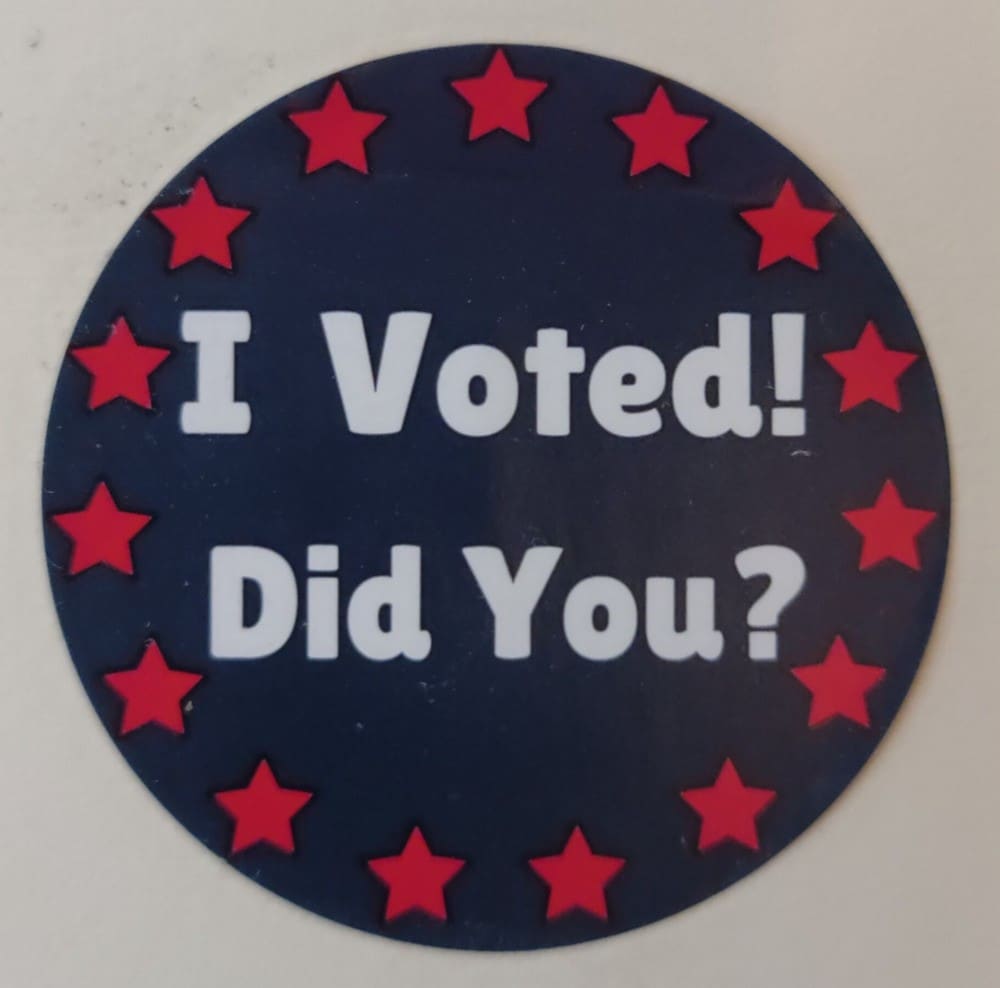
The Indiana Citizen
November 6, 2023
Hotly contested races may not only increase the participation in traditionally low turnout municipal races but also cause some Hoosier voters to be confronted by “dirty tricks” or “overly spirited campaign volunteers” at the polls when they go to the polls Tuesday to cast their ballots.
However, Common Cause Indiana and the Chicago Lawyers’ Committee on Civil Rights are providing assistance through the Election Protection hotline – 866-OUR-VOTE or 866-687-8683 (Spanish speakers can call 888-VE-Y-VOTA or 888-839-8682.
Also, Indiana Secretary of State Diego Morales’ office has launched a texting hotline for election assistance. Voters can text “IN” to 45995 and submit any question about voting.
Hoosier voters can connect with these hotlines to get basic information, such as polling site locations and the forms of ID needed to vote, or to get help if they have problems casting a ballot.
“No question is too small for us to assist with in a nonpartisan manner,” Ami Gandhi, CLCCR director of strategic initiatives and Midwest Voting Rights Program, said of the Election Protection hotline.
Gandhi described Indiana as having “bureaucratic difficulties and barriers to access” that discourage too many eligible voters. The barriers, she said, include the requirement that all voters show a photo ID when voting, plus the lack of same day voter registration, limited early voting and polls only open for 12 hours on Election Day.
Also, Gandhi noted that this is the first election since the Indiana General Assembly added an ID requirement for absentee voting, which “is expected to pose an additional barrier for voters.”
“We have been continuing to analyze this law,” Gandhi said, noting that CLCCR advocated against the bill during the 2023 session of the state legislature. “And we remain concerned about the barriers that will be imposed, particularly on voters of color, seniors, students, people with disabilities and people in pretrial detention.”
In addition to the bureaucratic hurdles, voting rights groups worry that politics could create additional obstacles to voting.
Julia Vaughn, executive director of Common Cause Indiana, said since the 2016 presidential race, “bad behavior” has increased at polling places, which creates an unwelcoming atmosphere and can discourage people from voting altogether. She and her team are anticipating that some of the contentious races may spill over into problems at polling sites.
“I would call the campaign for mayor in Indianapolis quite aggressive,” Vaughn said. “And it’s been going on for a long time and that sometimes leads to, on Election Day, in particular, volunteers just going overboard and getting into arguments.”
Vaughn recalled numerous incidents in recent years of aggressive behavior, including people walking around polling sites waving Confederate flags and, one time, a poll worker showing up with a gun. In South Bend, a voting machine technician at the polling location was wearing a hat with the MAGA logo (the “Make America Great Again” slogan that was popularized by former President Donald Trump).
Another time, Vaughn said, a campaign volunteer started broadcasting live on Facebook to encourage people to vote. The inspector at the polling place called the Election Protection hotline over concerns the volunteer was violating the privacy of voters.
“In a state that really lags behind other states in terms of turnout,” Vaughn said, “you just don’t want anything less than a welcoming atmosphere at polling places.”
Indiana’s voter turnout in presidential and mid-term elections has been below the national average since the 1990s, according to the 2021 Indiana Civic Health Index. Even though the state’s turnout climbed to 61% in 2020, its rank among all states fell to 46th, because the U.S. average jumped to 67%.
Municipal elections have posted even lower turnout. In November 2019, just 23% of registered voters in Indiana cast a ballot in person. In the 2023 primary recorded only 12% voted in person.
The Indianapolis mayoral contest between Democratic incumbent Joe Hogsett and Republican challenger Jefferson Shreve has Vaughn watching for a return of what she called “dirty tricks.” These tricks commonly focus on challenging a voter’s registration, questioning if the individual lives at the address on the registration form.
Vaughn pointed out that widespread challenges could make a difference in close races. Common Cause, she said, will work closely with the Election Protection hotline to give the voter advice and, as a last resort, have the voter submit a provisional ballot. Afterward, Common Cause then works to ensure the voter follows up to make sure the provisional ballot is counted.
“But the average voter, if someone challenges them, I think they’re going to be completely intimidated and walk out of the polling place saying, “what just happened?’” Vaughn said.
Absent the politics, Vaughn said Indiana is experiencing a transition in the poll worker community. The COVID-19 pandemic convinced a lot of the longtime poll workers to stop volunteering for a job that often entails a 15 hour day for $110, she said.
While Vaughn said she was heartened by the high school students who are stepping up to volunteer, she highlighted concerns about having “green poll workers” trying to run elections. This does not even include traditional poll concerns like voting machines not working, the wi-fi going down and the weather not cooperating.
“The goal,” Vaughn said, “is always to help the voter get access to the ballot.”